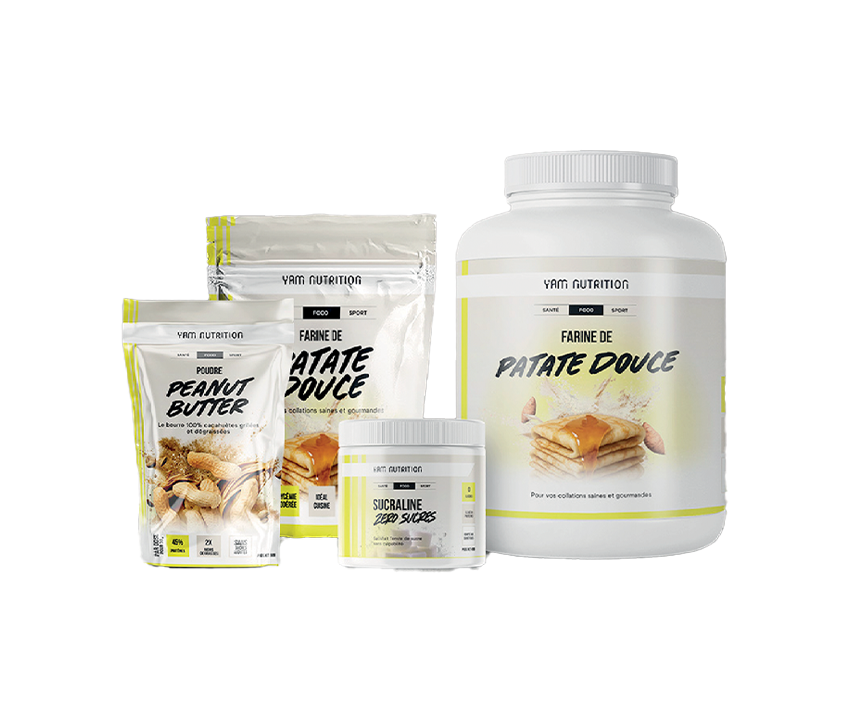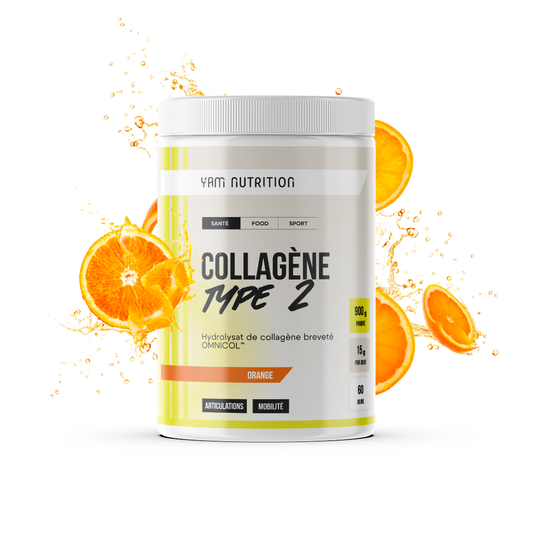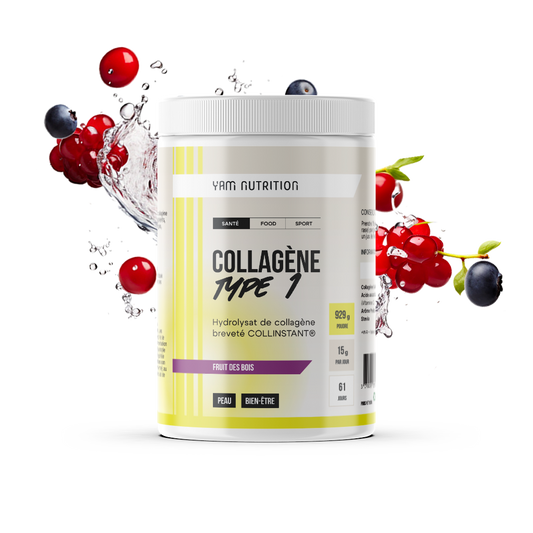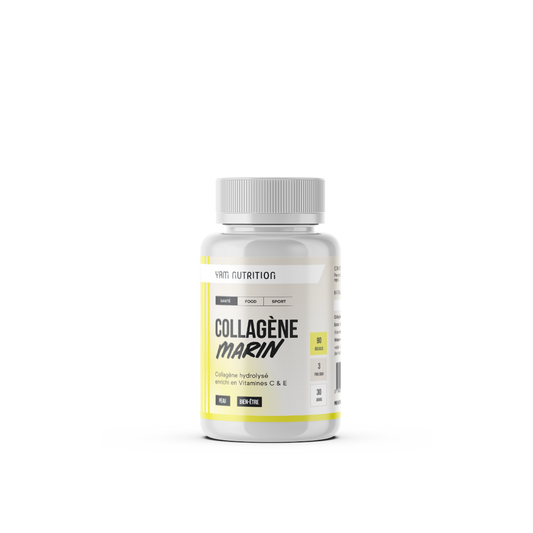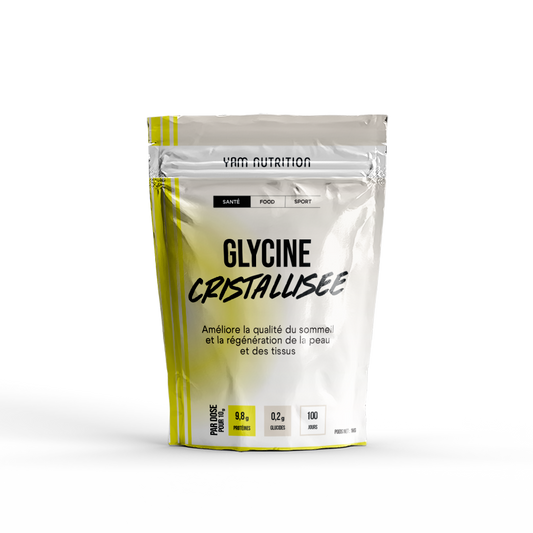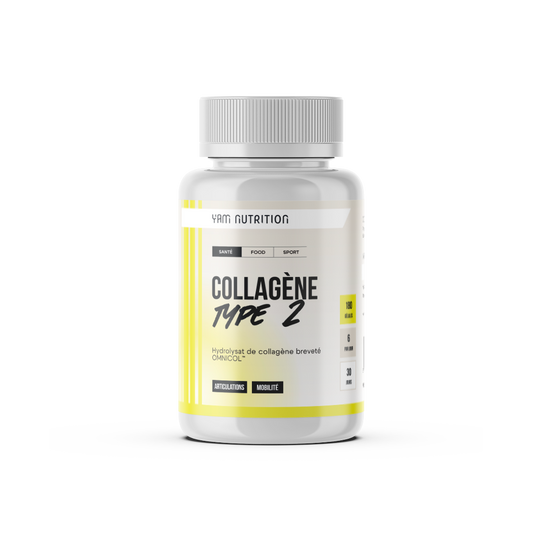Collagen, we explain what it is...
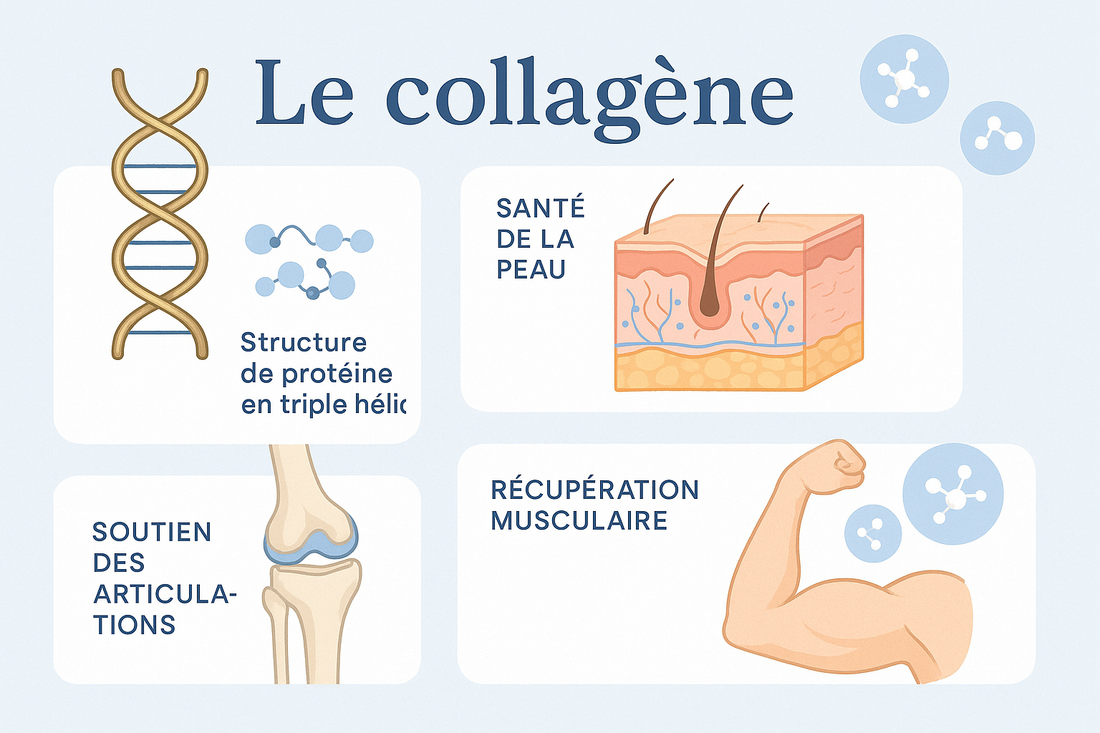
Collagen is a protein that's getting a lot of attention these days, even though it doesn't directly contribute to muscle growth and therefore, to the synthesis of our own proteins, at least in theory. But as with all subjects involving biochemistry, the demonstrated scientific reality often turns out to be much more complex than our opinions would have us believe. The amino acid profile of collagen (relative balance between amino acids) is indeed not very conducive to stimulating hypertrophy, but that is not exactly the interest or purpose of a protein such as this one. However, the content and balance of amino acids in a protein is not an absolute rule. The function of a protein is undoubtedly just as important as its content of simple elements. This is particularly the case for collagen, present in your skin, tendons, joints or cartilage and many other tissues.
OMNICOL™ Patented Collagen Hydrolysate Patented COLLINSTANT® Collagen Hydrolysate Forest Fruits or Mango/Peach Hydrolyzed collagen of marine origin (fish)
Collagen Type 2 Powder
Sale price
From 49,90 €
Collagen Type 1 Powder
Sale price
From 49,90 €
Marine Collagen
Sale price
29,90 €
Collagen contains few amino acids that are directly involved in muscle protein synthesis.
In fact, whey protein or micellar casein are much more likely to stimulate muscle growth than collagen. However, this protein has other benefits that dairy proteins do not. Collagen is rich in Glycine as well as Lysine and Proline, found in their hydroxylysine and hydroxyproline forms. In fact, our body synthesizes the -hydroxy form of these two amino acids itself. Glycine , Hydroxyproline and hydroxylysine are the main components of the collagen fibers developed by our bodies. A hydroxyl group is added to these two amino acids to allow them to bond together and synthesize the fibers. Numerous combinations of amino acids will then lead to the synthesis of the 28 forms of fibrous proteins of this type necessary for the body.
Collagen is one of the most abundant proteins in the human body
In terms of numbers, collagen represents nearly 30% of the proteins in our body. While there are hundreds of proteins and peptides, no other protein is found in such high proportions. Particularly rich in Glycine, this amino acid is also the simplest at the molecular level. However, Glycine has particularities that other amino acids do not. Usable as energy source by gluconeogenesis, wisteria is also proteinogenic while it is one of the most abundant amino acids in collagen (one in three). Glycine is also involved in the synthesis of bile (digestive juice), it is essential for the synthesis of creatine , glutathione (a major cellular antioxidant), acetylcholine, and other molecules. Glycine, a crucial amino acid for multiple organic functions, is also one of the most frequently deficient amino acids. If we consume a large amount of muscle meat, this is at the expense of other parts of the animal, which are richer in collagen and glycine.
Glycine is the most representative amino acid of a collagen protein
In any case, Glycine stimulates the development of collagen, the major protein in maintaining the mechanical integrity of the human body. It also plays a role in the strength of bones, joints and cartilage . As you know, collagen also helps maintain the integrity of connective tissues like tendons and ligaments. It's primarily a structural protein for our bodies that strengthens skin, bones, muscles, and organs. Ultimately, collagen is a particularly useful protein for our bodies. Obviously, if you can't take collagen powder, start by taking 5 to 8 grams of Glycine per day. Your body will thank you in the long run. However, such supplementation already provides positive effects in the short term. But truth be told, supplementing with collagen powder would certainly contribute more to the health of athletes (and sedentary people) than one might initially think. However, not all collagens are equal...
Some powdered collagens have a molecular mass of 3000 to 5000 kDa
The unit of measurement for molecular mass is the kilo Dalton. On average, a collagen protein powder contains peptides (if it is a hydrolyzate) measuring between 3000 and 5000 kDa. Let's say that these are already large molecules. With this size, the peptides are agglomerated and will probably pass through the intestine with more difficulty than a hydrolyzed collagen of 2000 kDa. In addition, Collinstant ® Viscofan contains 1000 kDa peptide fractions, which gives it an unmatched finesse as well as optimal assimilation, very rarely found in other collagens.
Naturally, it is this collagen hydrolyzate that was selected by Yam Nutrition for the development of Coll-Agen. Indeed, Coll-Agen with Collinstant® offers you exceptional quality type I collagen. Rapidly assimilated , completely pure, and pleasant to drink – even for its neutral taste – Coll-Agen dissolves in just a few moments and offers maximum bioavailability. However, if you don't like the taste of collagen, Coll-Agen is available in wild berry and orange flavors. From then on, you'll have no more excuses for not providing your body with the most essential protein in the human body...
Eric MALLET
Spécialiste en Nutrition Sportive
